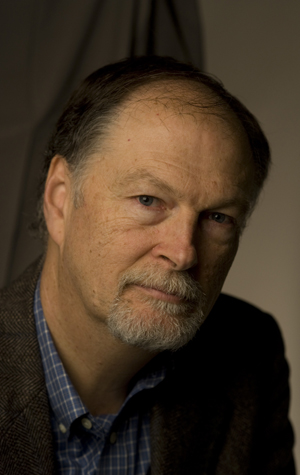Historian Versus Mosquito
Why battling malaria is like facing off against a boxing champ

Mosquitoes fight a lot like Muhammad Ali. They can take multiple hits, says James McCann, letting their opponents drain themselves of energy until they buckle. “Spend your money on DDT,” says McCann, who is a history professor at Boston University’s College of Arts & Sciences. “Spend your money on bed nets. Spend your money on huge programs for eradication. And who ends up winning? The resilient mosquito.” It’s a point that’s central to his ongoing studies of malaria, and one he drives home in his forthcoming book, Deposing the Malevolent Spirit: The History and Cultural Ecology of Malaria in Ethiopia, 1770–2013. McCann, who is also associate director for development at BU’s African Studies Center, spent 2012–2013 as a Guggenheim and Fulbright Fellow in Ethiopia and Germany, where he wrote the book, taught environmental history, and conducted field research.
McCann spoke to BU Research about the role of agriculture in malaria, the benefits of a quick response to an outbreak, and why vaccines won’t work.
BU Research: Malaria still causes hundreds of thousands of deaths every year worldwide. What are we doing wrong?
McCann: At the moment, it’s making the assumption that we will find a vaccine. Even though the attempts at the vaccine are getting lots of money, it’s a false hope. I think what we need to do is identify how we can move quickly when there’s an outbreak, and change public awareness.
Why are vaccines a false hope?
They don’t work. A vaccine would be good for you or me traveling, but not for people who live where the disease is. The current attempt at a vaccine requires rural people in Africa with few medical facilities to return for vaccine booster shots three times for a treatment that works less than half of the time. And the effect fades quickly. That is not going to work to eradicate or control malaria. The strategy may be good for funding biomedical laboratories but not for eradicating malaria.
Is there a particular story about malaria that influenced you and your work?
In 1998, when I returned to Bure, a place where I’d lived in Ethiopia [while volunteering for the Peace Corps in the 1970s], I asked my former landlord what had been going on there. And he said the big thing was malaria. I said, “What? I lived here for two years. There was no malaria. There were no mosquitoes.” Some change had come about so that area was now vulnerable, and the unstable nature of malaria meant that people had no immunity and there was little infrastructure to respond. [The 1998 outbreak infected nearly 40 percent of Bure’s population and killed 700.] This is increasingly the case in Africa. That incident prompted me and other researchers to say, “Let’s look at what changed.” When we looked at the relationship between malaria and agriculture, we found that one hectare of maize produces 150 kg of pollen, and that pollen is the most effective micronutrient for mosquito larvae. No one had ever looked at that before. And that connection tells us the ecology of agricultural productivity links directly to disease contexts.
What does your research reveal about how we should tackle the disease?
In a recent outbreak in western Ethiopia, the Carter Center had diagnostic tools that said, “There’s an outbreak coming.” They didn’t stop the outbreak, but they were able to respond quickly with drug therapy and other interventions so the level of infection did not turn into mortality. That was the key.
What else does your research reveal we need to do?
Recognize that malaria is an ecological disease. It doesn’t mean we stop growing maize; maize is the number-one crop in Africa. But work with the system so that choosing different types of maize may restrict that contact between the timing of when the maize pollen gets shed and when the larvae are growing. It’s understanding malaria over time as a disease of ecology. You can’t just stop it with a magic bullet.